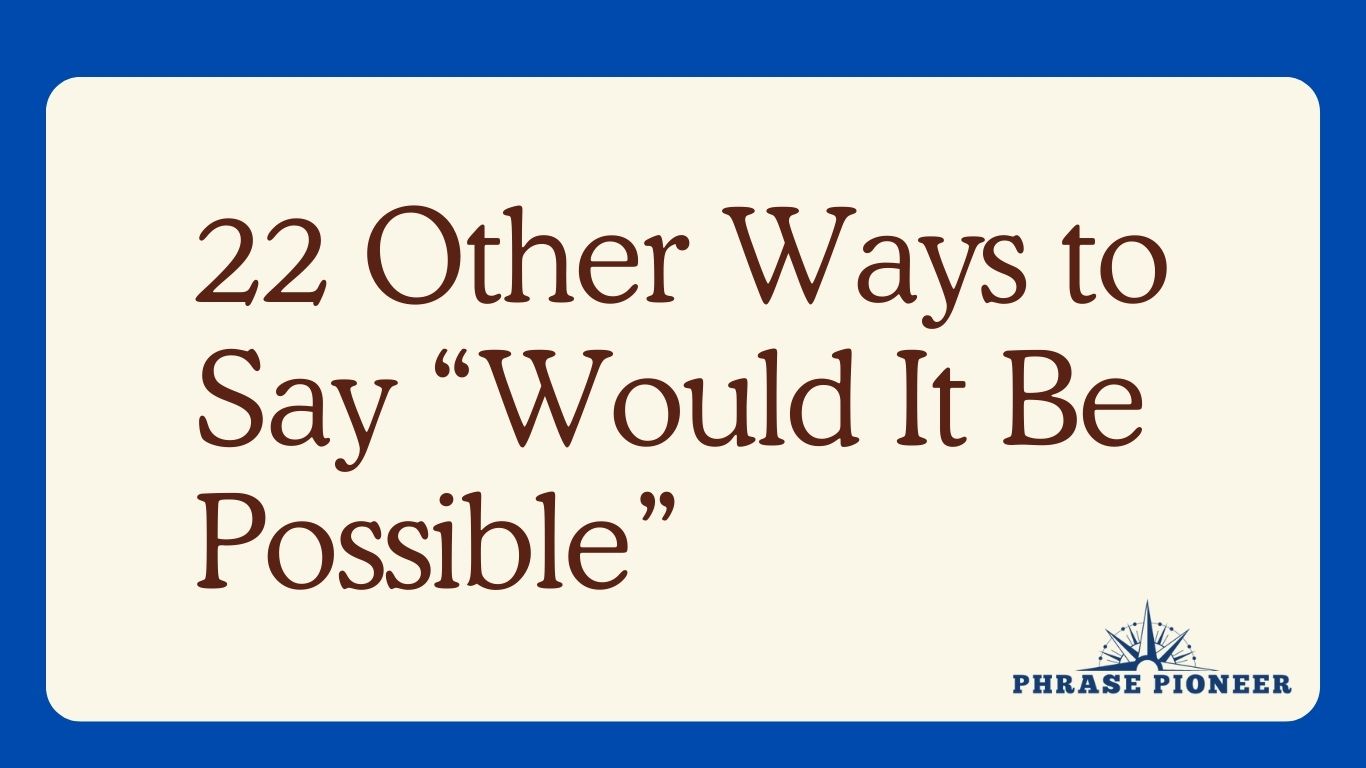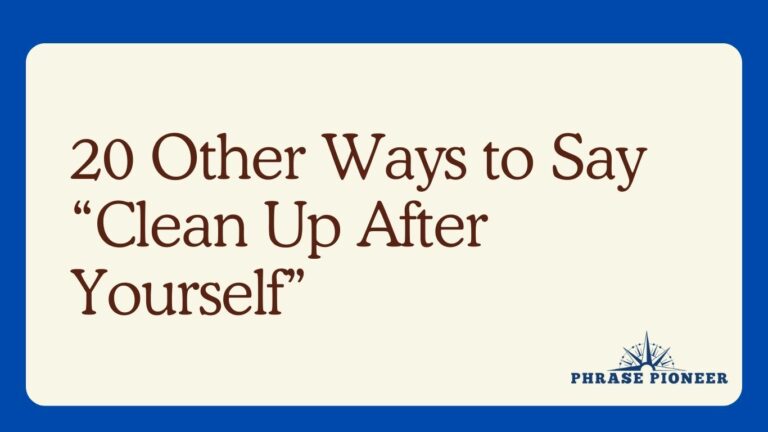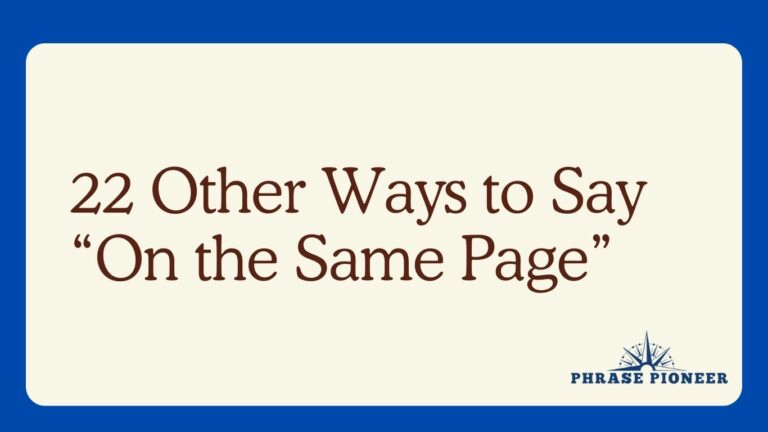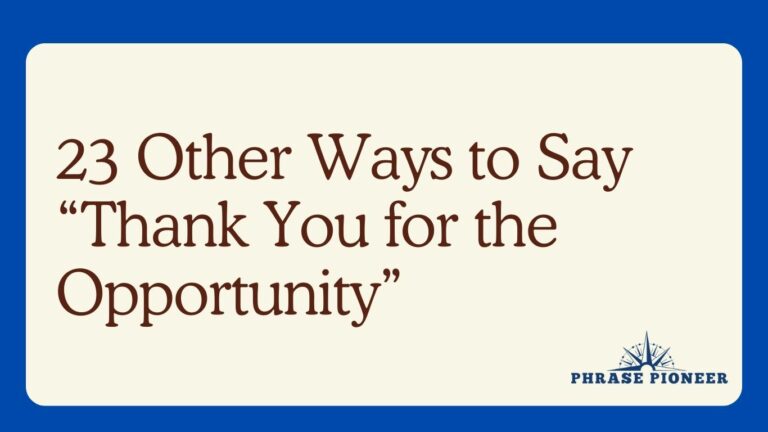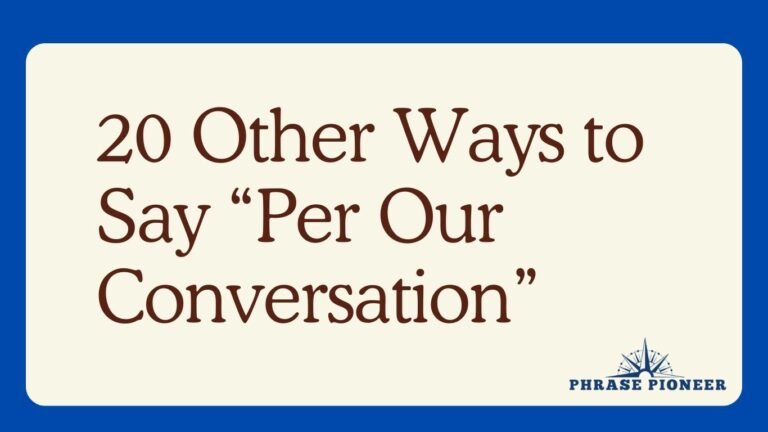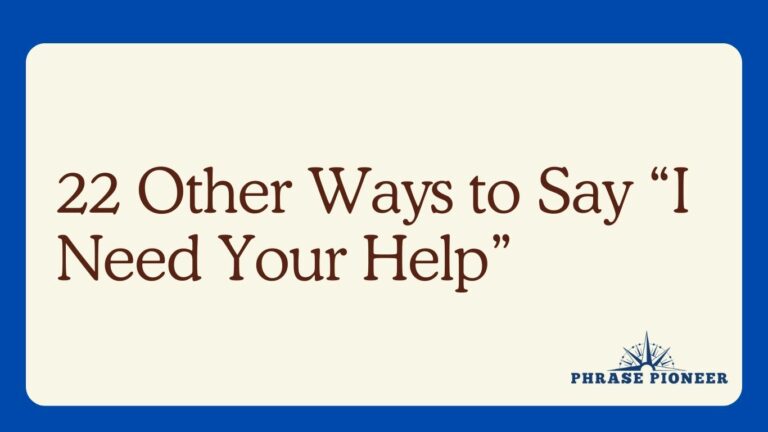22 Other Ways to Say “Would It Be Possible”
Polite Inquiries
- Could you
Example: Could you take a look at my report before I submit it?
Explanation: “Could you” is a polite request often used to ask someone if they can perform a task. - Is it feasible
Example: Is it feasible for us to finish this project by the end of the week?
Explanation: “Is it feasible” queries the practicality or likelihood of a certain action happening. - Might I ask if
Example: Might I ask if you could extend the deadline?
Explanation: “Might I ask if” is a very formal and deferential way to request information or a favor. - Would you be so kind as to
Example: Would you be so kind as to direct me to the nearest gas station?
Explanation: This phrase is exceedingly polite and is often used to ask for help gracefully.
Requests for Permission
- May I request
Example: May I request a day off next Friday?
Explanation: “May I request” is a respectful way of asking for something, typically formal permission. - Do you think it’s doable
Example: Do you think it’s doable to reschedule our meeting for tomorrow?
Explanation: This phrase asks for the other person’s opinion on the practicality or possibility of a proposal. - Is there any chance
Example: Is there any chance you could lend me your textbook over the weekend?
Explanation: “Is there any chance” suggests a polite inquiry into the likelihood of an action being acceptable. - Can I propose
Example: Can I propose we take a short break before continuing the workshop?
Explanation: “Can I propose” is used when suggesting an idea or plan for consideration and agreement.
Subtle Suggestions
- I was wondering if
Example: I was wondering if you’d be interested in joining our book club.
Explanation: “I was wondering if” is a gentle and indirect way of putting forward a question or suggestion. - Is there a possibility
Example: Is there a possibility we can move the appointment to a later date?
Explanation: This phrase opens the conversation to the potential for change or accommodation. - How do you feel about
Example: How do you feel about trying a new approach to the campaign?
Explanation: “How do you feel about” seeks the other person’s opinion in a considerate manner, with an underlying request. - Might we consider
Example: Might we consider adding a vegan option to the menu for our upcoming event?
Explanation: “Might we consider” is a soft and collaborative phrase for proposing new ideas.
Gentle Probes
- Would you mind
Example: Would you mind if I left the office early today?
Explanation: “Would you mind” is used to ask for permission in a way that allows the listener to refuse politely. - Could I possibly
Example: Could I possibly borrow your charger for a moment?
Explanation: “Could I possibly” introduces a slight hesitation, making the request seem less imposing. - Are you open to
Example: Are you open to discussing this matter later in the afternoon?
Explanation: “Are you open to” queries the other person’s willingness to consider an idea or suggestion. - Is it within the realm of possibility
Example: Is it within the realm of possibility for us to receive an extension on our project deadline?
Explanation: This phrase is an elaborate way of questioning the likelihood of a request being granted.
Softened Statements
- I’d like to inquire if
Example: I’d like to inquire if the position is still available.
Explanation: “I’d like to inquire if” is a polite and formal statement used when seeking information. - Would it offend you if
Example: Would it offend you if I asked for a second opinion?
Explanation: This phrase is used to ask sensitive questions while being cautious not to upset someone. - Could we talk about
Example: Could we talk about adjusting the workload?
Explanation: “Could we talk about” initiates a conversation with the intention of bringing up a new subject or issue. - Would you be open to
Example: Would you be open to shifting our weekly meeting to Tuesday?
Explanation: “Would you be open to” is used to politely introduce an idea or change for another person’s consideration.
Expressing Hope
- I hope it’s not too much to ask
Example: I hope it’s not too much to ask for a few days off to attend my sister’s wedding.
Explanation: This phrase signals a potentially larger request while trying to minimize its imposition. - It would mean a lot if
Example: It would mean a lot if you could review my application before the end of the day.
Explanation: “It would mean a lot if” conveys the importance of the request to the speaker, often invoking empathy.
Using these varied expressions can help you communicate your requests in a manner that is considerate and polite, very much enhancing interpersonal relations whether in personal or professional contexts.

